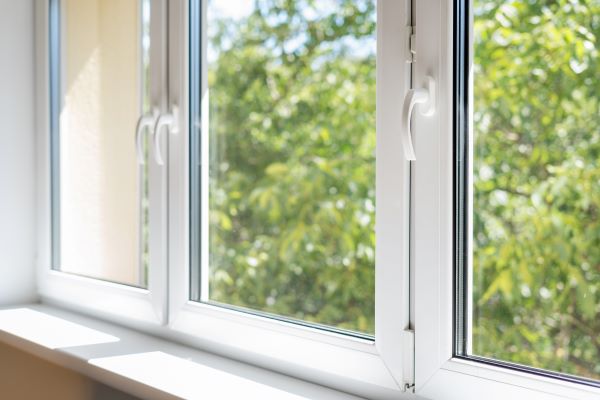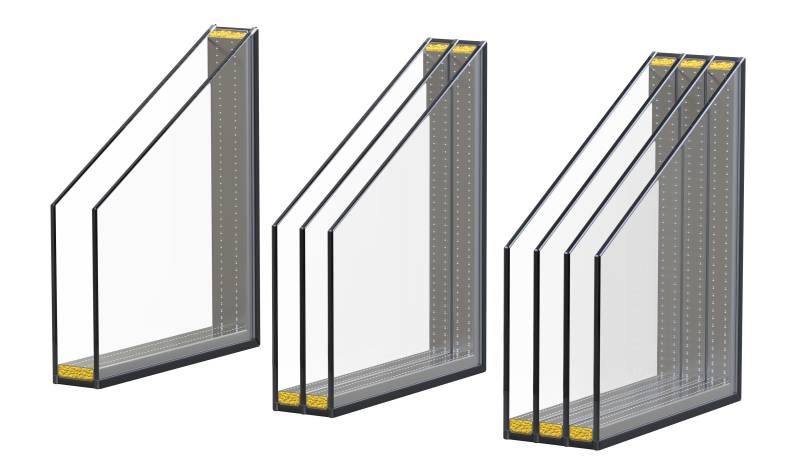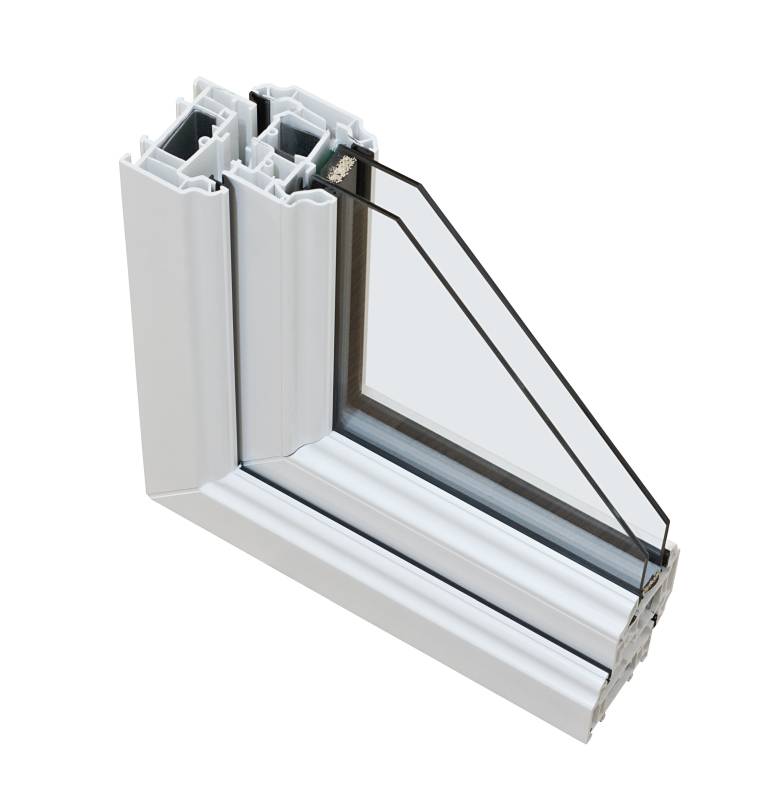No products in the cart.
Soundproof Windows – How Effective Are They?

11
Apr
Soundproof windows are an expensive and sought after upgrade to any home. They provide several benefits that makes it well worth the price, one being that they are low maintenance. This is because soundproof windows let in less dust, dirt, and bugs than standard, more “old-school” windows. You won’t find yourself cleaning spiderwebs out of the windowsill every week. Another great quality is that they are energy efficient since they reduce the amount of air filtration, which means that cool air is kept from escaping through tiny cracks in the summertime, and the same goes for warm air in the winter. Lastly, soundproof windows are aesthetically appealing due to having a high-end and modern look.
So… how much noise do soundproof windows block? This blog will consider 3 factors that determine the effectiveness of soundproof windows, including the following: window specifications, wall thickness, and the type of noise coming through.
Soundproof Window Specifications
When assessing a window for sound attenuation, there are several factors of critical importance. Generally speaking, the heavier the window is, the more of a barrier is provided and therefore the more sound it will block.
The more panes there are, the better the window typically performs. Also, the thicker each pane, the higher the STC. If the panes are spaced by 2” or more dead air space, then it is very difficult for sound to travel through that vacuum (like all of those space movies we watched growing up!).
However, gasketing is a must, since even heavy-duty windows can have sound leaks. This is due to the issue of flanking, which is defined as “sound that transmits between spaces indirectly, going over or around, rather than directly through the main separating element. This can allow sound to transmit between spaces even though the main separating element itself provides good acoustic insulation.”
Furthermore, thick glazings and laminations wrapped onto each pane, or similarly, high-impact windows (common in Hurricane Zones) can also help block noise and effect the overall soundproofing ability of your windows. When looking at the specs before purchasing, always ask for the STC class rating. For hurricane windows with thick glazings, you can expect an STC of 35 or higher if you live near a busy road.

Air vacuums between each pane help to control sound leaks through the window.
How to Measure the Thickness of a Wall
This doesn’t necessarily mean the thickness of the wall in inches, but rather, how robust are they? If it’s simply a 2×4 or 2×6 stud exterior wall with a thin stucco, then chances are traffic noise can penetrate this partition, and your issue is bigger than just windows..
Exterior walls are often designed and built for thermal insulation, but the soundproofing requirements can be equally important. This is especially a concern in older homes, as building codes which stipulate a level of acoustic insulation have only become popular in recent decades.
Not to mention, that as we previously discussed, sound can flank through a number of pathways, like a paper-thin crack in your baseboards, or through wall cut-outs such as an electrical outlet on an exterior facing wall, or an output for your clothes dryer. When looking to reduce exterior noise, these are all factors that would need to be addressed along with the installation of new windows. For more tips, check out my blog about finding sound leaks.
See Similar: Finding Sound Leaks
What is the Noise Source?
The third important factor to consider is noise source. Consider this example:
You live in an apartment building. Upstairs neighbors are stomping around above you, causing vibrational and airborne noise to come straight through the ceiling and into your bedroom or living space. Obviously the noise source would need to be taken into account; an acoustic membrane could be used to buffer the vibration and block out the airborne sound transmission.
However, the same issue (ancillary sound propagation paths) occurs with traffic and exterior noise. If there is a large mack truck idling right outside your house, then the ground vibration will bypass the wall entirely. Whether it’s overhead aircraft or nearby yard work, most walls are much less effective at blocking low, droning noises than they are at high pitches.
What can you do to improve the Soundproofing of your window? Consider upgrading to a heavier duty soundproof window, or adding a high-STC sound dampening curtain. By combining soundproofing layers and minimizing flanking, you can dramatically improve the composite STC rating of the window and curtain together.
Conclusion – How Effective Are Soundproof Windows?
As mentioned, there are many factors that play a role in leaking outside sounds into your home. Let’s review the steps you can take to achieve a STC sound blocking ability of 35:
- Check the noise source to ensure that vibrational sound is under control
- Prevent sound flanking around the window and through wall partitions
- Select a heavy duty soundproof window (preferably triple pane).
For a more affordable solution to achieve better STC ratings and soundproof your existing window, check out our range of soundproofing curtains available online. As always, contact our team if you have any further questions!
Summary

Article Name
Soundproof Windows - How Effective Are They?
Description
When you're spending significant money on soundproof windows, it's critical to understand how much sound they'll block. Learn how here.
Author
Walker Peek
Publisher Name
Residential Acoustics
Publisher Logo

